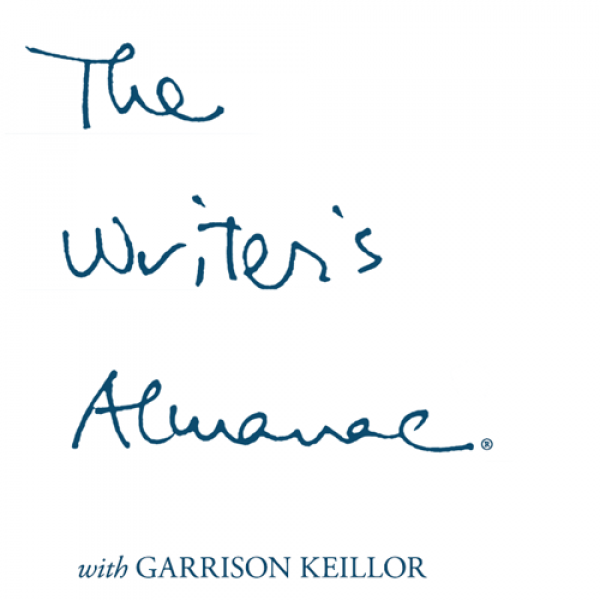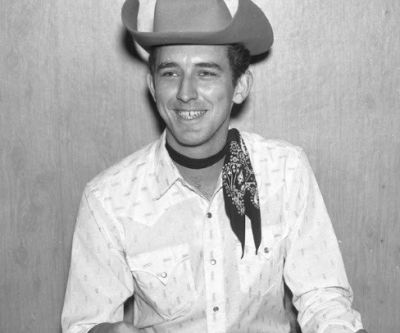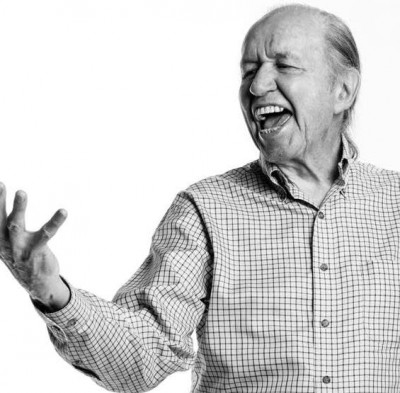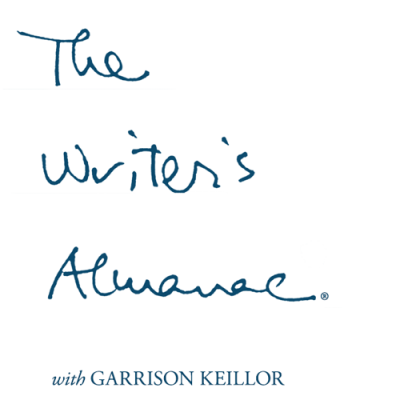December 20, 2018
Tuesday
8:00 p.m.
Minneapolis, MN
Test schedule
A live performance with Robin and Linda Williams at the Cedar Cultural Center
May 20, 2018
Sunday
3:00 p.m.
Lexington, MA
Lexington, MA
A live performance at the Saenger Theatre
April 10, 2018
Tuesday
8:00 p.m.
Tulsa, OK
Tulsa, OK
A live performance at the Brady Theater
March 17, 2018
Saturday
8:00 p.m.
Long Beach, CA
Long Beach, CA
A live performance at the Carpenter Performing Arts Center
March 15, 2018
Thursday
7:00 p.m.
Mobile, AL
Mobile, AL
A live performance at the Saenger Theatre
“The Passionate Shepherd to His Love,” by Christopher Marlowe. Public domain. (buy now)
Come live with me and be my love,
And we will all the pleasures prove,
That valleys, groves, hills and fields,
Woods or steepy mountain yields.
And we will sit upon the rocks,
Seeing the shepherds feed their flocks
By shallow rivers, to whose falls
Melodious birds sing madrigals.
And I will make thee beds of roses,
And a thousand fragrant posies,
A cap of flowers and a kirtle
Embroidered all with leaves of myrtle;
A gown made of the finest wool,
Which from our pretty lambs we pull;
Fair-lined slippers for the cold,
With buckles of the purest gold;
A belt of straw and ivy buds,
With coral clasps and amber studs;
And if these pleasures may thee move,
Come live with me and be my love.
The shepherds’ swains shall dance and sing
For thy delight each May morning;
If these delights thy mind may move,
Then live with me and be my love.
It’s the birthday of novelist Saul Bellow (books by this author), born in Lachine, Quebec (1913). His parents were Russian immigrants. In Russia, his father imported Egyptian onions. In Canada, he worked in a bakery; he delivered coal; and he was a bootlegger, smuggling alcohol across the border during Prohibition. When Saul was nine years old, the family moved to Chicago, the city that would become the setting of many of Bellow’s novels. He said, “There was always plenty of space in Chicago; it was ugly but roomy, plenty of opportunity to see masses of things, a large view, a never entirely trustworthy vacancy; ample grayness, ample brownness, big clouds. The train used to make rickety speed through the violet evenings of summer over the clean steel rails (nothing else was clean) through the backyards of Chicago with their gray wooden porches, the soiled gray stairs, the clumsy lumber of the trusses, the pulley clotheslines. On the South Side you rode straight into the stockyard fumes. The frightful stink seemed to infect the sun itself, so that it was reeking as well as shining.”
Bellow studied anthropology and sociology at Northwestern Univeristy. In 1938, a year after he graduated, Bellow went to work for the Chicago branch of the WPA Writers’ Project. His first job was at the Newbery Library, cataloging Illinois periodicals. Then he worked on biographies of Midwestern writers. He said, “We adored the project, all of us. This was in the days before gratitude became obsolete. We had never expected anyone to have any use whatsoever for us. With no grand illusions about Roosevelt and Harry Hopkins, I believe they behaved decently and imaginatively for men without culture—which is what politicians necessarily are.”
He said that in those early days, “I became attached to this coarse, yellow paper which caught the tip of your pen and absorbed too much ink. It was used by the young men and women in Chicago who carried rolls of manuscripts in their pockets and read aloud to one another in hall bedrooms or at Thompson’s or Pixley’s cafeterias.”
He was working on a novel, Ruben Whitfield, but he ended up abandoning it. In 1942, his second novel, The Very Dark Trees, was accepted for publication by a small press for $165—but the editor of the publishing house got drafted and it was never published. Bellows burned the manuscript. A year later, he applied for a Guggenheim Fellowship, but didn’t get it; he applied for a job as a critic at Time, and didn’t get that either. He was working part-time for the Encyclopedia Britannica when his first novel, Dangling Man, (1944), was published. He got some good reviews, went off and served in the Marines, published a second novel. He said, “When I wrote those early books I was timid. I still felt the incredible effrontery of announcing myself to the world (in part I mean the WASP world) as a writer and an artist. I had to touch a great many bases, demonstrate my abilities, pay my respects to formal requirements. In short, I was afraid to let myself go.” But after he was finally awarded a Guggenheim Fellowship, he moved to Paris and wrote the book that would make him famous: The Adventures of Augie March (1953). He said, “When I began to write Augie March[,] I took off many of these restraints. I think I took off too many, and went too far, but I was feeling the excitement of discovery. I had just increased my freedom, and like any emancipated plebeian I abused it at once. […] I could not, with such an instrument as I developed in the first two books, express a variety of things I knew intimately. Those books, though useful, did not give me a form in which I felt comfortable. A writer should be able to express himself easily, naturally, copiously in a form that frees his mind, his energies. Why should he hobble himself with formalities? With a borrowed sensibility? With the desire to be ‘correct’? Why should I force myself to write like an Englishman or a contributor to The New Yorker? I soon saw that it was simply not in me to be a mandarin. I should add that for a young man in my position there were social inhibitions, too. I had good reason to fear that I would be put down as a foreigner, an interloper. It was made clear to me when I studied literature in the university that as a Jew and the son of Russian Jews I would probably never have the right feeling for Anglo-Saxon traditions, for English words. I realized even in college that the people who told me this were not necessarily disinterested friends. But they had an effect on me, nevertheless. This was something from which I had to free myself. I fought free because I had to.”
Bellows worked on The Adventures of Augie March in Paris, New York, Italy, Austria, and New Jersey—never in Chicago. But, he said, “It was Chicago before the Depression that moved my imagination as I went to my room in the morning, not misty Paris with its cold statues and its streams of water running along the curbstones.” Augie March begins: “I am an American, Chicago born — Chicago, that somber city — and go at things as I have taught myself, free-style, and will make the record in my own way: first to knock, first admitted; sometimes an innocent knock, sometimes a not so innocent. But a man’s character is his fate, says Heraclitus, and in the end there isn’t any way to disguise the nature of the knocks by acoustical work on the door or gloving the knuckles.”
Bellow’s other novels include Henderson the Rain King (1959), Herzog (1964), Humboldt’s Gift (1975), and Ravelstein (2000). He died in 2005, at the age of 89.
He said, “Vividness is what novelists must desire most and so they must value human existence or be unfaithful to their calling.”
On this day in 1881, Leo Tolstoy (books by this author) set off on a pilgrimage to the Optina Pustyn monastery.
He was 52 years old, and his two greatest novels, War and Peace (1869) and Anna Karenina (1877), were behind him. He had found himself in a crisis—he was famous, had a family and land and money, but it all seemed empty. He was unable to write, had trouble sleeping, contemplated suicide. He read the great philosophers, but found holes in all of their arguments. He was amazed that the majority of ordinary Russians managed to keep themselves going every day, and he finally decided that it must be their faith. From there, it was a short time until Tolstoy took a walk in the woods and found God. He wrote: “At the thought of God, happy waves of life welled up inside me. Everything came alive, took on meaning. The moment I thought I knew God, I lived. But the moment I forgot him, the moment I stopped believing, I also stopped living.”
His wife Sophia was not so thrilled with his conversion. On the one hand, he had his share of faults—Tolstoy himself lamented his life before finding God: “I killed people in war, challenged men to duels with the purpose of killing them, and lost at cards; I squandered the fruits of the peasants’ toil and then had them executed; I was a fornicator and a cheat. Lying, stealing, promiscuity of every kind, drunkenness, violence, murder—there was not a crime I did not commit.” But now he was going to extremes. He renounced meat, sex, alcohol, fiction, tobacco, and the temptations of a family. He dressed like a peasant. He wanted to give all of his money away, but Sophia wanted to live what she considered a normal life, not to mention raise their 10 children.
Tolstoy made his first visit to Optina-Pustyn in 1877, a visit in which he apparently exhausted the chief starets—or community elder—with his questions. On this day in 1881 he set off on a second visit, and this time he decided that to be more like the common people, he would walk all the way there, dressed in his peasant coat and wearing shoes made out of bark. He was pleased with his spiritual guidance, but he wasn’t used to walking in bark shoes, so by the time he made it to Optina his feet were so covered in blisters that he had to take the train back home.
It was on this day in 1935 that the most successful self-help organization of the 20th century was founded: Alcoholics Anonymous. It’s 75 years old today. It began in Akron, Ohio, started by a stockbroker named Bill Wilson and a surgeon named Bob Smith. Bill Wilson had gone to Akron on a business trip in May of 1935. He had been trying to give up drinking for years, and he’d always found that the best way to keep from drinking was to spend time with other men who were trying to keep from drinking. But on his business trip to Akron, he was alone, and he felt tempted to go to the local bar.
Instead, he went to a church group meeting, looking for someone else who was struggling with the drink. It was there that he met the surgeon Bob Smith. The two men became friends and promised to help keep each other sober.
Wilson decided to write a book about his ideas to help spread the message, called Alcoholics Anonymous (1939). The group began to get coverage in local newspapers. Then in 1941, a journalist for The Saturday Evening Post heard about the organization and wrote an article about it. Suddenly, requests for literature and membership soared. By the end of the year, there were more than 6,000 members.
It’s the birthday of the biologist E.O. Wilson, (books by this author) born Edward Osborne Wilson in Birmingham, Alabama (1929).
He studied biology at the University of Tennessee and Harvard, and then spent years traveling and studying ants. He started teaching at Harvard, and he published The Theory of Island Biogeography (1967), which was very influential in the fields of ecology and conservation biology.
In 1975, he wrote Sociobiology. The basic concept of sociobiology is that there is a biological foundation for behavior, in everything from ants to humans. The book was extremely controversial; some people were concerned that it justified racism and sexism. Wilson was attacked for it. So he wrote a rebuttal, On Human Nature (1978), explaining how the concepts of sociobiology could help lead us to a more fair and just society, not the opposite. It was a best-seller and won the Pulitzer Prize.
Wilson has continued to publish books, include Biophilia (1984), The Ants (1990), all about ants; an autobiography, Naturalist (1995); and most recently, his 22nd book and first novel: Anthill (2010).
Wilson said, “Destroying rainforest for economic gain is like burning a Renaissance painting to cook a meal.”






